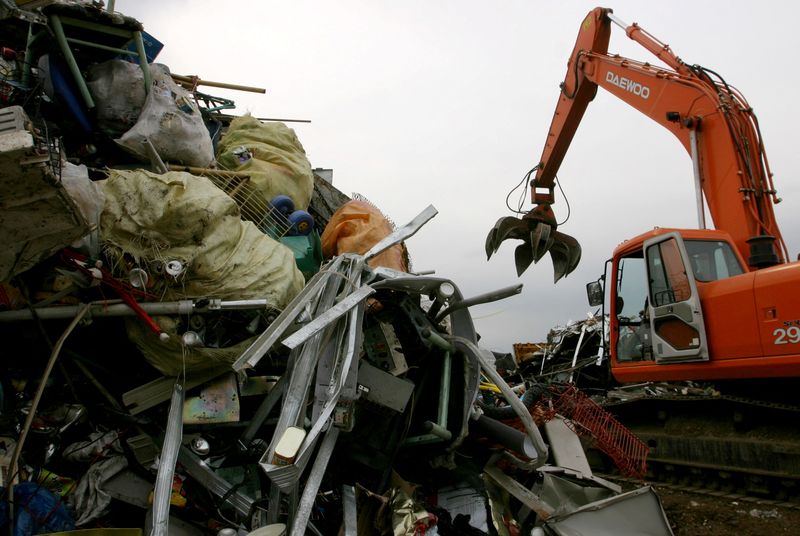SEOUL (Reuters) - South Korea plans to manage steel scrap from cars and abandoned buildings and structures as a strategic material, a government official said on Thursday, amid tight supplies and a price surge triggered by Russia's invasion of Ukraine.
Asia's fourth-largest economy is considering multiple ways, including an incentive system, to secure enough steel scrap, the official said. Prices have soared almost 40% since late February, according to research firm Fastmarkets.
South Korea, with sprawling auto, shipbuilding and appliances industries, is a major steel consumer. It sourced 83% of its steel scrap locally in 2020, while Russia supplied 13%.
The supply crunch caused by the war in Ukraine has had an impact as demand rises, said Lee Jae-yeon, an official with the trade ministry's metals and ceramics division.
"Global demand for electric furnaces is increasing as they emit less carbon than blast furnaces," she told Reuters. "The demand for steel scrap, a key feedstock for electric furnaces, is growing in tandem. Managing it as a strategic material is part of our response."
The world's sixth-largest steelmaker produced 31% of its steel with electric arc furnaces in 2020, according to the latest data.
Crude steel made in electric arc furnaces will climb to 48% of the global total by 2050, on par with traditional blast furnace steelmaking, from 30% in 2021, consultancy Wood Mackenzie estimates.

Russian steel scrap prices are rising as Moscow imposed a tariff on its export this month to stabilise domestic prices.
South Korea's import of Russian steel scrap more than tripled to $24 million in April, data from Korea International Trade Association showed.